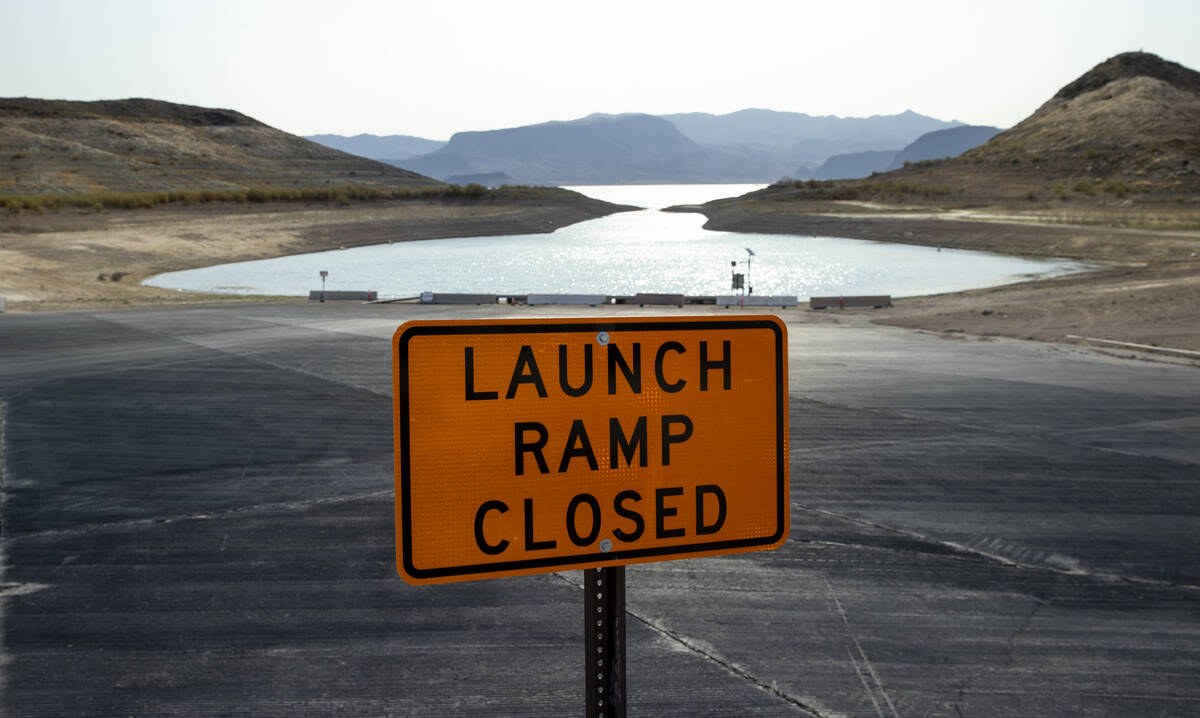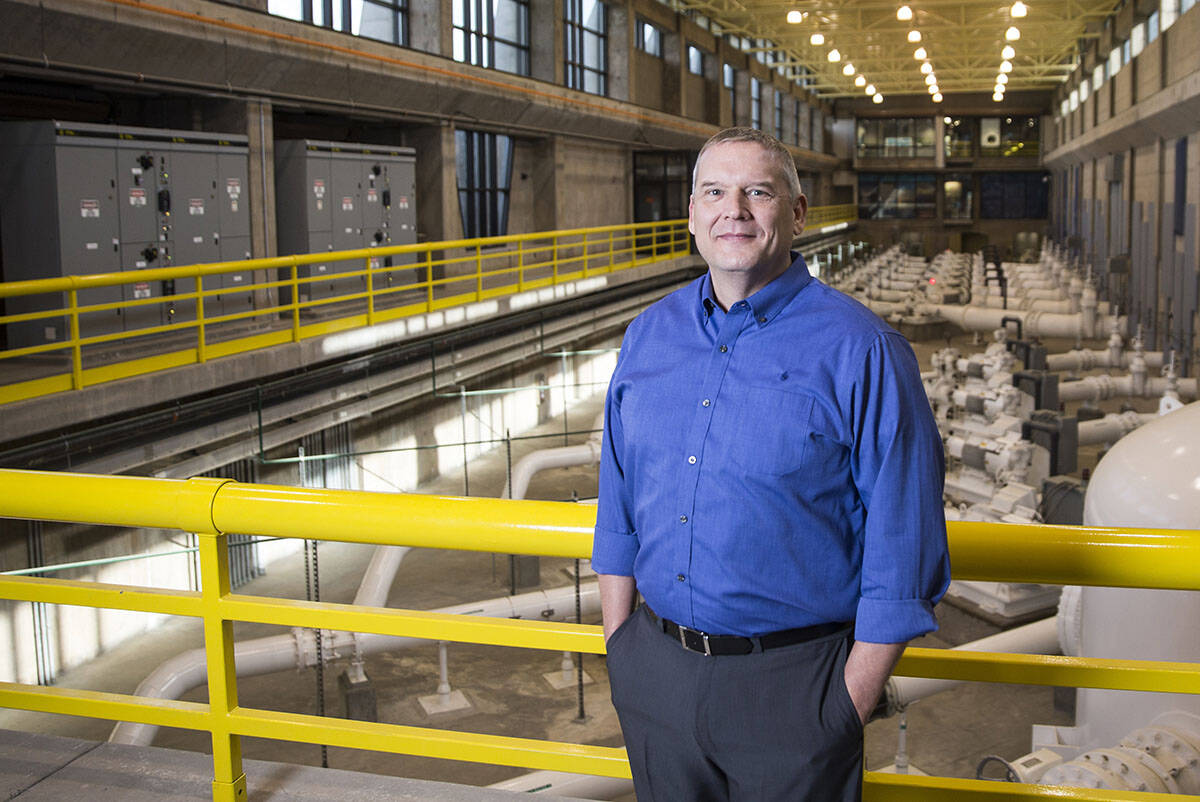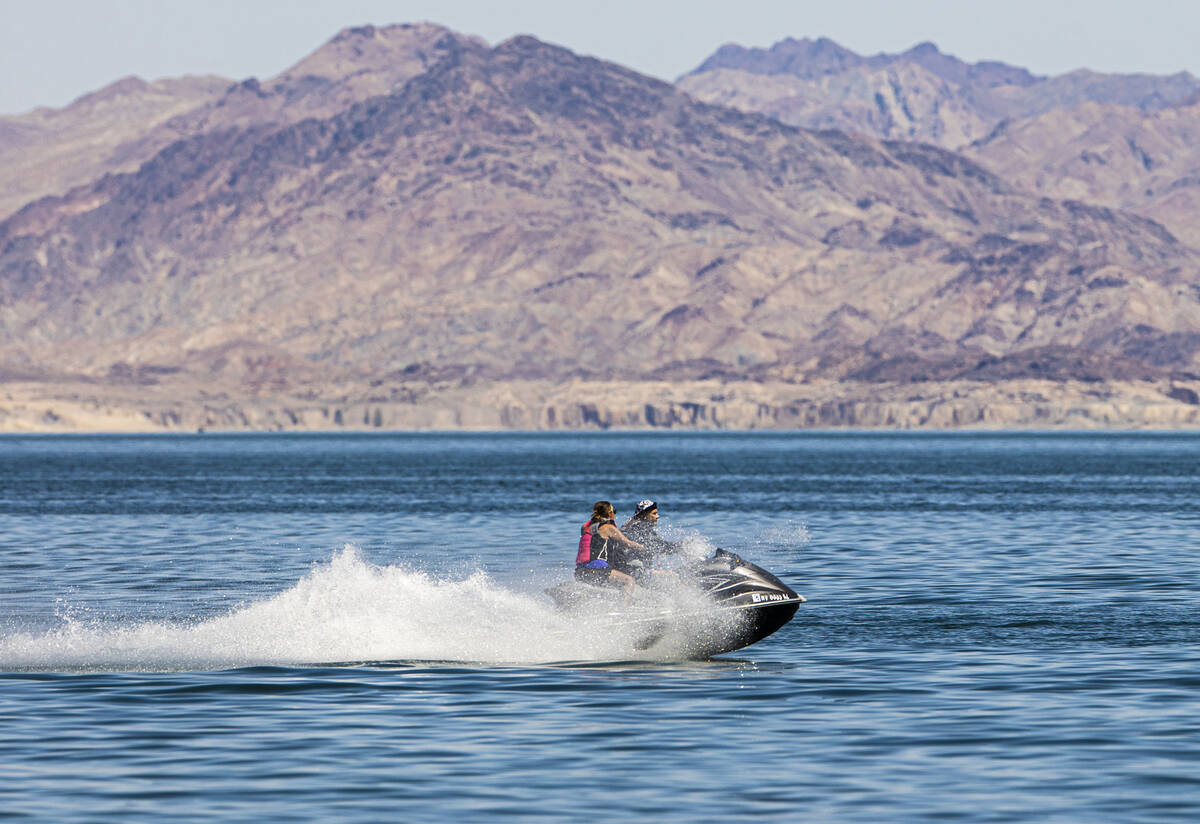Here’s what’s in the $1T infrastructure package for Western water
A $1 trillion infrastructure bill that received bipartisan support in the Senate last month includes billions of dollars for Western water projects and programs.
The Biden administration has called the infrastructure bill, which includes $8.3 billion for Western water infrastructure, “the largest investment in the resilience of physical and natural systems in American history.”
Of the $8.3 billion dedicated to Western water, $450 million is set aside for a competitive grant program to fund large-scale projects that advance water recycling.
“This will secure the water future of Nevadans as well as Americans across the Colorado River Basin,” Southern Nevada Water Authority General Manager John Entsminger said this month.
That program could help pay for a massive recycling project in California that would leave Nevada with access to more water in Lake Mead.
Under the proposed project, the Metropolitan Water District of Southern California would recycle wastewater and inject it into the ground for later use, leaving more water in the lake.
In exchange for helping to pay for the project, the Southern Nevada Water Authority would receive some of California’s share of water from Lake Mead.
It’s one of the ways officials want to combat a shrinking Lake Mead, which received its first federal shortage declaration last month. The declaration means Nevada will have its allocation of Colorado River water slashed next year.
Democratic Sen. Catherine Cortez Masto, who authored the large-scale recycling grant program provision of the bill, said the project could produce enough water to serve more than 500,000 homes. (Rep. Susie Lee, D-Nev., co-sponsored similar legislation in the House, citing the need for water recycling to address the drought in the West.)
“That is one project,” Cortez Masto said at a news conference in Las Vegas on Sept. 1. “It is important for us to continue to make these investments in drought resiliency throughout the West.”
She said that is why the infrastructure bill includes $8.3 billion for water projects and programs in the West. Sen. Jacky Rosen, D-Nev., also backed the inclusion of water infrastructure in the sweeping bill.
Breaking down the bill
The largest amount of money set aside in the Western water infrastructure section of the bill — $3.2 billion — will go toward aging infrastructure. Another roughly $3 billion will be split up almost equally for storing and moving water, rural water projects and water recycling efforts.
An additional $1 billion will be split between desalination projects and studies, a dam safety program, and the design, study and construction of aquatic ecosystem restoration and protection projects.
Lawmakers also budgeted $300 million for drought mitigation measures in the Colorado River Basin, and another $50 million for endangered species recovery and conservation programs in the region.
The rest of the Western water budget in the infrastructure bill includes watershed improvement and management projects and federal grants for various water projects.
It’s unclear exactly how much Nevada would receive from the package.
The infrastructure still needs approval from the House before President Joe Biden can sign it into law.
Money won’t solve West’s problems
Kyle Roerink, executive director of the Great Basin Water Network, said the infrastructure package is only one piece of the solution to the West’s water woes.
“But if we think that we’re just going to throw money at all of our problems and that’s going to fix everything, that’s a fool’s errand,” he said. “Money isn’t going to solve the West’s water problems.”
Roerink praised the wastewater recycling partnership between California and Nevada but said he suspects Nevada’s congressional delegation will use that project to quell concerns about the Clark County lands bill.
The bill, introduced by Cortez Masto, would open up tens of thousands of acres to new development while setting aside other land for wilderness protection. Roerink said much of the land that the bill seeks to protect is already protected.
Some conservation groups have criticized the measure as a sprawl bill, claiming it would allow unsustainable growth.
Cortez Masto said the bill focuses on managing growth and would ensure efficient water use.
Contact Blake Apgar at bapgar@reviewjournal.com or 702-387-5298. Follow @blakeapgar on Twitter.




















